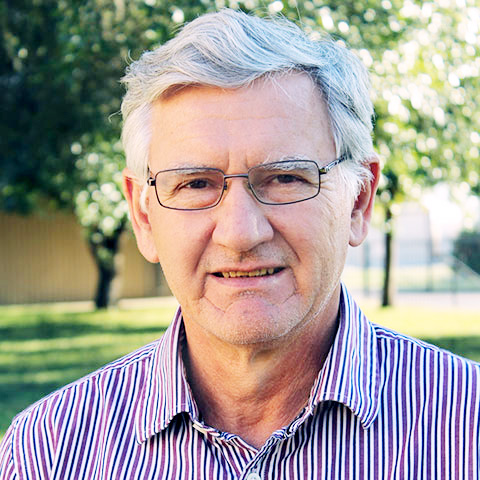Recognizing impact in horticulture
Leskovar earns horticulture society leadership award
A Texas A&M AgriLife Research professor has received the Paul Smeal Leadership and Administration Award, bestowed by the Southern Region of the American Society for Horticultural Science.
Daniel Leskovar, Ph.D., is interim director at the Texas A&M AgriLife Research and Extension Center at Dallas and director of the Texas A&M AgriLife Research and Extension Center at Uvalde. He is a professor of vegetable physiology and plant sciences in the Texas A&M Department of Horticultural Sciences. He has served as associate director of the Texas A&M Vegetable and Fruit Improvement Center.
Leskovar was recognized during the horticultural society’s annual meeting Feb. 11-13 for “outstanding and effective leadership and administration contributing to the progress of professional horticulture.
“The Smeal Award additionally promotes interest and appreciation for superior leadership and administration for the improvement of horticultural science,” the award states.
Horticultural initiatives helmed by Leskovar throughout his career in administration have bolstered the field with lasting impacts across Texas and the U.S.
A career in administration
In his role as associate director with the Texas A&M Vegetable and Fruit Improvement Center, the unit has broadened engagement with regional vegetable industries and stakeholders, and it has expanded collaboration among researchers and graduate students.
As director of the Texas A&M AgriLife centers at Dallas and Uvalde, Leskovar has emphasized responses to urban development with technologically advanced research initiatives, bolstered funding, cross-institution research collaborations and impactful programming to entice top emerging talent.
Beginning in 2010, at the Uvalde center, Leskovar reignited the center’s horticultural focus by bringing in horticulture scientists in plant breeding, metabolomics, vegetable physiology and plant ecophysiology. These researchers boosted extramural funding, expanded collaboration with Texas A&M scientists across the state and launched many graduate students into careers at recognized agricultural colleges.
Meanwhile, Leskovar’s leadership in a statewide fruit and vegetable initiative began in 2012-2013 with a comprehensive assessment of Texas A&M AgriLife’s relationship and impact on the supply chain across Texas. Industry focus groups resulting from the studies informed a focal increase on plant sciences throughout Texas A&M AgriLife.
“This initiative overall has led to increased hiring and stronger horticultural programs, especially in the areas of plant breeding and physiology,” Leskovar said.
At the Dallas center, Leskovar helped ramp up efforts of urban agriculture programming with a strong emphasis on controlled environment agriculture and horticulture research. He also was instrumental in reformulating collaboration among multidisciplinary research and extension programs housed at the Dallas center. These administrative steps helped unify the center’s research and extension activities toward common goals in urban agriculture that continue today.
Moving forward
Leskovar now looks to the future as he continues his roles at the helm of two centers, each of which emphasizes horticultural sciences, turfgrasses and agronomy for the future of healthier people, environments and economies.
“We look forward to the next phase of horticultural sciences,” Leskovar said. “Every day, we continue to seek new solutions for bringing world-class research talent and technologies to bear upon better horticultural systems for consumers, producers and the world.”



